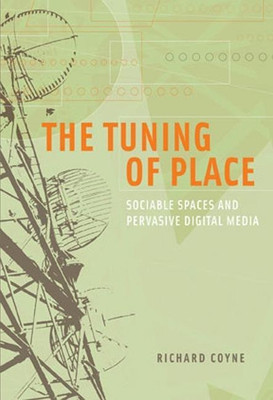The Tuning of Place(English, Hardcover, Coyne Richard)
Quick Overview
Product Price Comparison
How pervasive digital devices-smartphones, iPods, GPS navigation systems, and their networks-us formulate a sense of place and refine social relationships How do pervasive digital devices-smartphones, iPods, GPS navigation systems, and cameras, among others-influence the way we use spaces? In The Tuning of Place, Richard Coyne argues that these ubiquitous devices and the networks that support them become the means of making incremental adjustments within spaces-of tuning place. Pervasive media help us formulate a sense of place, writes Coyne, through their capacity to introduce small changes, in the same way that tuning a musical instrument invokes the subtle process of recalibration. Places are inhabited spaces, populated by people, their concerns, memories, stories, conversations, encounters, and artifacts. The tuning of place-whereby people use their devices in their interactions with one another-is also a tuning of social relations. The range of ubiquity is vast-from the familiar phones and hand-held devices through RFID tags, smart badges, dynamic signage, microprocessors in cars and kitchen appliances, wearable computing, and prosthetics, to devices still in development. Rather than catalog achievements and predictions, Coyne offers a theoretical framework for discussing pervasive media that can inform developers, designers, and users as they contemplate interventions into the environment. Processes of tuning can lead to consideration of themes highly relevant to pervasive computing: intervention, calibration, wedges, habits, rhythm, tags, taps, tactics, thresholds, aggregation, noise, and interference.


